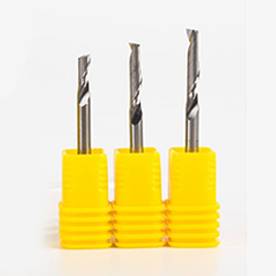loading...
- No. 9, Xingyuan South Street, Dongwaihuan Road, Zaoqiang County, Hengshui, Hebei, China
- admin@zjcomposites.com
- +86 15097380338
- Welcome to visit our website!
Pressure Vessel Filters - Efficient Solutions for Industrial Applications
Understanding Pressure Vessel Filters Safety and Efficiency in Industrial Applications
Pressure vessels are integral components in various industries, designed to contain fluids or gases at pressures substantially different from the ambient pressure. These vessels hold critical importance in sectors like oil and gas, chemical processing, and power generation. Among the various components associated with pressure vessels, filters play a crucial role in ensuring operational safety and efficiency.
Understanding Pressure Vessel Filters Safety and Efficiency in Industrial Applications
There are several types of filters used in conjunction with pressure vessels, each serving specific purposes depending on the application and the nature of the fluid being processed. Common types include cartridge filters, mesh filters, and coalescing filters. Cartridge filters are often used in liquid applications to capture particulates. Mesh filters, on the other hand, are effective in gas applications where larger particles need to be prevented from entering the vessel. Coalescing filters are particularly useful for separating water from fuels in petroleum processing, ensuring that only purified liquid enters the pressure vessel.
pressure vessel filter

The choice of filter is dictated by several factors, including the type of fluid, the expected contaminant load, and the operational pressure. It is imperative to select the right filter to avoid issues such as clogging, which can result in increased pressure drop and reduced flow rates. Regular maintenance and monitoring of filter performance are equally essential to ensure the long-term efficacy of filtration systems associated with pressure vessels.
Safety is paramount when discussing pressure vessels and their filters. Any failure in the filtration system can lead to potentially catastrophic consequences, including explosions or leaks. Therefore, adherence to industry standards and regulations, such as those outlined by the American Society of Mechanical Engineers (ASME) and the Occupational Safety and Health Administration (OSHA), cannot be overstated. These guidelines provide frameworks for design, operation, and maintenance, ensuring that pressure vessels, along with their filters, operate safely and efficiently.
In recent years, advancements in filtration technology have led to the development of more efficient filter materials and designs. Innovations such as automated backwashing filters or self-cleaning systems have improved operational efficiency and reduced maintenance downtime. Moreover, the integration of IoT (Internet of Things) technology facilitates real-time monitoring of filter performance, allowing for predictive maintenance and reducing the risk of unexpected failures.
In conclusion, filters are a vital component in the operation of pressure vessels, significantly impacting both safety and efficiency in various industrial applications. By understanding the different types of filters, their functions, and the importance of regular maintenance, industries can enhance the reliability of their systems while minimizing risks. As technology evolves, the future of pressure vessel filtration looks promising, with innovations likely to further improve safety standards and operational efficiency.
-
GRP Structures: The Future of Lightweight, High-Performance EngineeringNewsJun.20,2025
-
FRP Water Tank: High-Performance Storage for Corrosive and Clean Water SystemsNewsJun.20,2025
-
FRP Square Tube: The New Industry Standard for Chemical and Structural ApplicationsNewsJun.20,2025
-
FRP Pultruded Profiles: The Ultimate Choice for Lightweight Structural StrengthNewsJun.20,2025
-
FRP Handrails: The Safer, Smarter, and Stronger Choice for Modern InfrastructureNewsJun.20,2025
-
FRP Grating: The Smart Solution for Durable, Lightweight Industrial FlooringNewsJun.20,2025
-
Why Choose a Galvanized Water Tank for Your Storage NeedsNewsMay.21,2025
